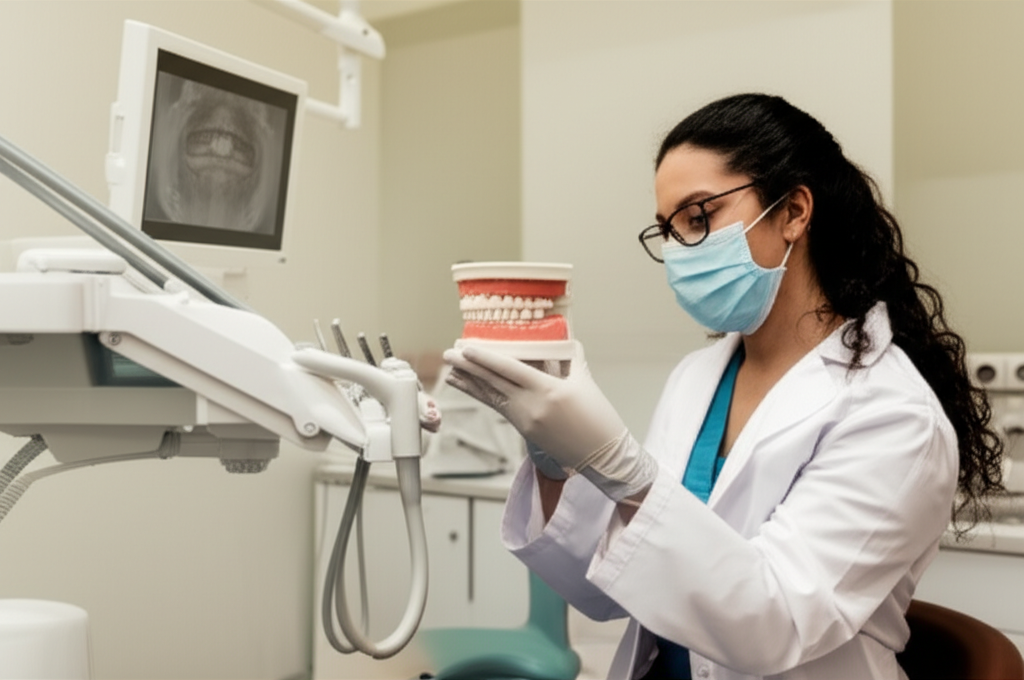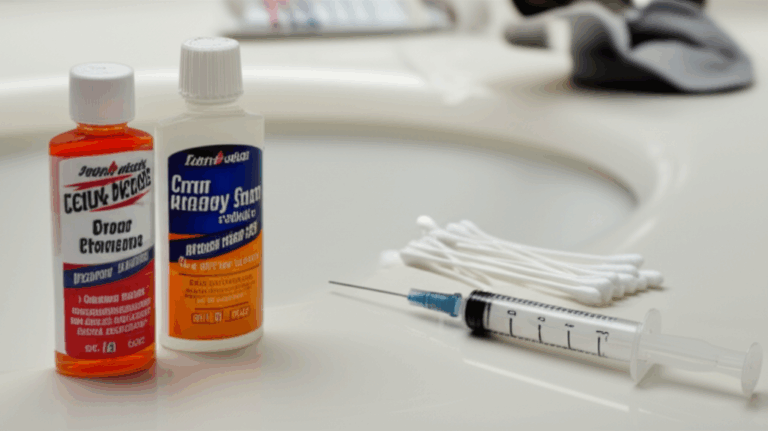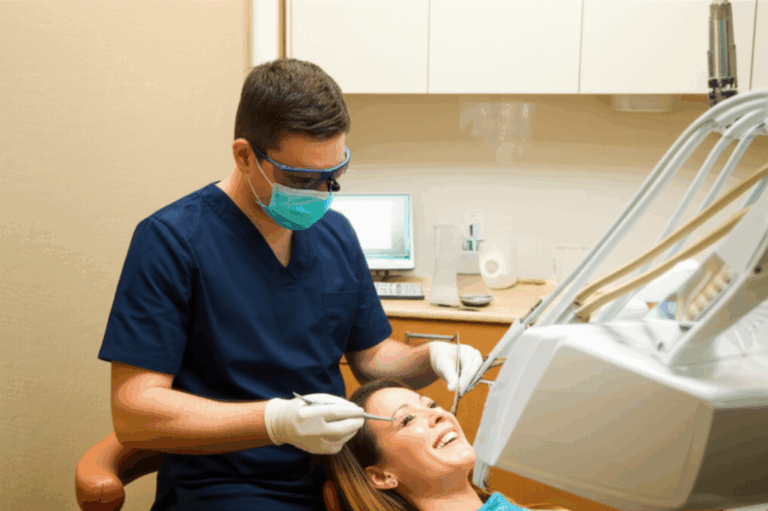
How to Become an Airway Dentist: Your Step-by-Step Guide to a Life-Changing Dental Career
Want to help people sleep better, breathe easier, and live happier lives—all while building a great dental career? This guide shows how to become an airway dentist, explains why airway health matters, and what makes this dental specialty a growing, meaningful job.
Table of Contents
- What Is an Airway Dentist and Why Do We Need Them?
- What’s the Big Problem with Airway Health?
- What Kind of Education Do You Need?
- What Special Training Should You Get?
- How Do You Get Certified as an Airway Dentist?
- What Skills Should an Airway Dentist Have?
- How Do You Set Up an Airway Dental Practice?
- What Kind of Career and Salary Can You Expect?
- What Problems Might You Face?
- Can Airway Dentistry Change Lives? (Case Study)
- Most Important Takeaways
What Is an Airway Dentist and Why Do We Need Them?
Imagine waking up feeling rested and breathing easily every day. Airway dentists try to help people get just that. These dentists do more than fix cavities or straighten teeth—they look at how your jaw, teeth, and even your breathing at night affect your whole health.
What Does an Airway Dentist Do?
Airway dentists help folks with problems like sleep-disordered breathing (SDB), obstructive sleep apnea (OSA), and snoring. Instead of just using drills, they use oral devices, teach mouth and breathing exercises, and work together with sleep doctors and ENTs to help people breathe better.
Why Is This Growing So Fast?
Sleep and breathing troubles affect millions of people—around 1 billion adults have OSA and up to 90% don’t even know it! More people now see that fixing these problems can help tiredness, bad moods, and even children’s behavior. Who wouldn’t want to help make that better?
What’s the Big Problem with Airway Health?
To be real, lots of people go to the dentist not knowing that jaw or teeth problems might be why they can’t sleep, get headaches, or feel worn out all the time. Just not treating sleep apnea costs the US about $149.6 billion a year!
- Many people can’t use CPAP machines.
- Kids may be called “problem kids” or have ADHD, but really, they don’t breathe well at night.
- Even snoring, teeth grinding, and always being tired can start with the mouth and airway.
If dentists don’t check for airway health, they miss a big chance to help people and join a fast-growing, high-impact field.
What Kind of Education Do You Need?
Becoming an airway dentist isn’t that tricky, but there is a path to follow:
Step 1: Dental School
First, you need to become a dentist.
- Get a bachelor’s degree (usually in biology, chemistry, or another science)
- Take the Dental Admission Test (DAT)
- Go to dental school for your DDS or DMD degree (about 4 years)
In dental school, you learn about anatomy, body systems, oral biology, and all kinds of dental care.
If you’re in high school or college, loving science and wanting to help people is a good start.
Step 2: Dental License
You have to pass your state’s dental exams so you can work as a dentist.
What Special Training Should You Get?
Airway dentistry needs extra training even after dental school. You’ll want to join continuing education (CE) classes and workshops.
Where Can You Learn?
Some good options:
- American Academy of Dental Sleep Medicine (AADSM)
- Spear Education
- Pankey Institute
- Airway Health Solutions
What Should You Study?
- Sleep basics and sleep breathing problems
- How faces and jaws grow and how that changes the airway
- How to use special oral devices for sleep (OAT)
- Exercises for mouth and breathing muscles
- How to fix tongue and lip ties
- Airway orthodontics and expanders
- How jaw joint problems can affect the airway
It’s also important to get hands-on practice with CBCT scanning, making oral appliances, and checking airways.
How Do You Get Certified as an Airway Dentist?
Having a certificate shows you know your stuff. The main groups for airway certifications are:
AADSM Membership
Joining the American Academy of Dental Sleep Medicine lets you meet top people in airway dentistry, get fresh research, and learn the best ways to help patients.
ABDSM Certification
The American Board of Dental Sleep Medicine (ABDSM) gives board certification in dental sleep medicine. You’ll need to:
- Take approved classes
- Pass a written test
- Show you’ve really treated patients with sleep problems
You can also get certified in orofacial myofunctional therapy or new airway braces.
What Skills Should an Airway Dentist Have?
Being an airway dentist needs more than just a degree. Here are the key skills:
Finding Airway Problems
- Ask good questions and listen to patient stories
- Check the airway by looking at the palate, tongue tie, bite, and more
- Look at CBCT scans or other x-rays
- Understand sleep studies like PSG or home tests
Treating Airway Issues
- Make custom mouth pieces like Mandibular Advancement Devices (MAD)
- Teach breathing or mouth exercises
- Work with sleep doctors, ENTs, or orthodontists
- Adjust care based on how the patient feels and sleep study results
Talking Skills
Some people feel scared or upset about sleep and breathing problems. You need to:
- Explain tough ideas in simple words
- Listen and show that you care
- Help people stick to their treatment
How Do You Set Up an Airway Dental Practice?
So you got the skills. Here’s how you get started with your airway dental practice:
Tools You’ll Need
- Digital scanners and CBCT machines for 3D pictures of airways
- Tools for making molds for custom mouth pieces
- Ways to connect to sleep study places (for home tests or working with sleep labs)
If you need digital scanning or fancy tooth work, teaming up with a digital dental lab helps give patients better results.
What Kind of Practice Works?
Some dentists open only airway clinics. Others add airway dentistry to a normal dental office. Both are good, but adding airway care lets you help more patients who may not even know they need it.
How to Get Patients
- Make friends with sleep doctors, children’s doctors, ENTs, and others
- Start a website and a simple blog to teach people about airway problems
- Give free checks for airway health or give talks about sleep in your town
Getting your team to learn airway checks helps a lot; working together makes things smoother.
Want to know more about top-quality dental materials? Look into a good dental ceramics lab where quality materials help patients feel better with their appliances.
What Kind of Career and Salary Can You Expect?
Let’s talk about rewards. Airway dentists are needed more than ever. Why?
- People are learning how much breathing and sleep affect their life.
- Airway dentists can sometimes bill medical insurance, which can pay better than regular dental work.
- You help people with big problems, like sleep apnea, and really change lives.
Money Facts
Here’s a simple table with some key info:
| Category | Details |
|---|---|
| Average airway dentist pay | $300,000 – $500,000+ (can change with your office) |
| Dental sleep medicine market growth | 9.8% per year (2023–2030) |
| OAT patient success rate (mild-moderate) | 50–70% see their sleep apnea drop by 50% or more |
| Patient happiness with oral devices | 75–85% (much better than CPAP) |
See how airway dentistry lets you help people and do well at work too?
If you grow your practice bigger or partner with a china dental lab, you can help more patients and reach more folks.
What Problems Might You Face?
Every job has its hard parts. Here’s what airway dentists may run into:
- Training and tools can cost a lot at first ($8,000–$15,000 for big programs).
- Finding airway problems isn’t always simple, especially with kids who might not talk about it.
- Insurance is sometimes tricky—sometimes it’s medical, sometimes dental.
- Sometimes patients need extra care to keep using their devices.
But don’t worry, as your skills and team grow, these problems get easier.
Can Airway Dentistry Change Lives? (Case Study)
Let’s see a real-life story.
Meet Sarah
Sarah, age 45, had snoring, always felt tired, and got headaches. She hated using a CPAP mask.
What did the dentist do?
Sarah’s story proves that one airway dentist can make a big difference for people who can’t use other treatments.
Most Important Takeaways
- Airway dentistry is about more than teeth. It helps kids and adults breathe, sleep, and live better.
- The steps are clear: Go to dental school, get licensed, do special training, get certified.
- Special skills matter. Learn how to spot airway problems, make oral appliances, work with doctors, and talk to people in clear ways.
- Need is huge. More people are finding out how much the mouth and breathing are linked.
- Big rewards. This job can change people’s lives, pays well, and you’ll keep learning.
- Good quality matters. Choose trusted lab partners, like a night guard dental lab for mouth guards and retainers that fit right and last.
In short: Becoming an airway dentist takes work, but you help people, build a great career, and find real purpose. Want to help people breathe better and sleep well? Start your airway dentist journey today!
FAQ
Q: How long does it take to become an airway dentist?
A: After dental school and your license, extra airway training usually takes 1–2 years, often while you already work as a dentist.
Q: Can I add airway dentistry to my regular dental office?
A: Yes! Lots of general dentists start with airway checks during normal care, then start making mouth guards and other airway treatments as they learn more.
Q: Who can get help from airway dentistry?
A: Kids who snore, adults with sleep apnea, people who are always tired, or anyone with sleep or breathing problems can get help.
Q: Are there dental labs that help with airway devices?
A: Yes! Whether you need digital molds or strong crowns for airway cases, work with a trusted crown and bridge lab for the best results.








